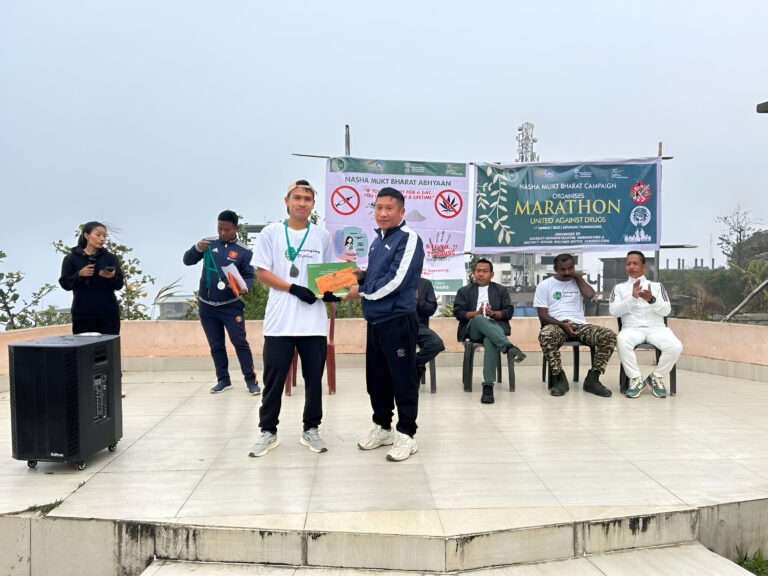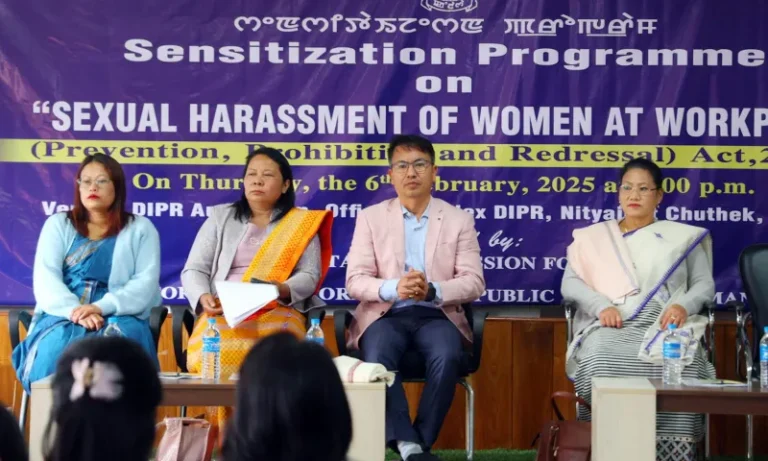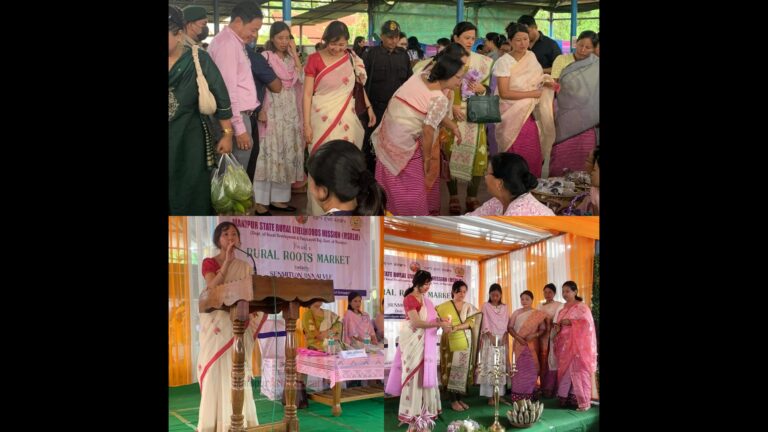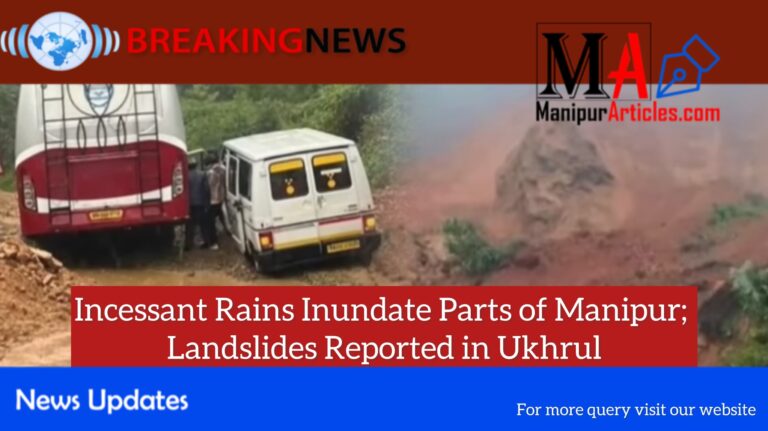Upcoming Tripartite Talks in Manipur on New District Creation
Summary
The tripartite talks concerning Manipur’s district creation dispute are set to resume on November 29, 2024. Initially scheduled for November 13, these discussions—between the Central government, Manipur state government, and the United Naga Council (UNC)—were postponed at the request of the UNC due to prior commitments. These talks aim to address tensions stemming from the creation of seven new districts by Manipur’s government in 2016, which had previously led to an extensive economic blockade by the UNC.
Full Article
Introduction
The complex issue of district creation in Manipur has once again brought key stakeholders to the negotiating table, highlighting longstanding tensions and calls for representation among the state’s diverse communities. With tripartite talks set to resume on November 29, 2024, this meeting will convene representatives from the Government of India, the Government of Manipur, and the United Naga Council (UNC). It’s a development watched keenly by all involved, as the talks aim to bridge historical divides and address the concerns of the Naga communities affected by the state’s district boundary changes.
In this article, we’ll explore the background of the dispute, the motives and stakes for each party, and the potential impact of these ongoing negotiations.
Background of the Manipur District Creation Issue
What Prompted the District Creation?
Back in December 2016, the Government of Manipur announced the creation of seven new districts—an act intended to improve administrative efficiency and bring government services closer to people in remote areas. However, this move sparked immediate discontent among the Naga communities, who viewed the decision as a disregard for their traditional lands and cultural territories. The UNC voiced concerns that the redistricting would alter the balance of power, challenging the established boundaries of Naga land.
The Economic Blockade
In response to this decision, the UNC initiated a 139-day economic blockade, paralyzing transportation routes and affecting trade throughout Manipur. Highways serving as essential arteries for goods and daily necessities were blocked, creating shortages and affecting the local economy. The economic blockade underscored the deep-rooted tensions around land rights, representation, and governance in Manipur.
Previous Rounds of Dialogue
Following the blockade, a series of talks began in 2017, with representatives from the Central government, the Manipur state government, and the UNC working to address grievances and seek common ground. While the talks have been sporadic over the years, they represent a critical attempt at mediation and understanding in one of India’s most ethnically diverse regions.
The Stakes for Each Party
The United Naga Council (UNC)
For the UNC, these talks are essential to protect the rights of the Naga community in Manipur. They seek to ensure that any administrative changes respect traditional boundaries and provide adequate representation for Naga interests. The UNC fears that without proper dialogue and safeguards, the new districts could dilute Naga influence and access to resources, ultimately marginalizing their community.
The Government of Manipur
From the Manipur government’s perspective, the creation of new districts is a matter of practical governance. Officials argue that smaller administrative units allow for more focused governance, especially in remote areas that previously lacked sufficient infrastructure and access to government services. The state government views the new districts as a step toward development, but recognizes the importance of addressing community concerns through continued dialogue.
The Central Government’s Role
The Central government serves as a mediator in these talks, aiming to maintain peace and stability in Manipur. Balancing the interests of both the state government and the Naga communities is crucial for the Central government, as unresolved issues could lead to prolonged unrest and disrupt the region’s socioeconomic stability.
Current Status: November 29, 2024 Meeting
Postponement and Rescheduling
Originally, the next round of talks was scheduled for November 13, 2024. However, at the UNC’s request, the date was shifted to November 29 due to scheduling conflicts among their representatives. The meeting will take place in Senapati, a district with a substantial Naga population, symbolizing the significance of this dialogue for the local community.
The UNC’s Expectations
The UNC is approaching this round of talks with renewed determination. They are expected to highlight the importance of maintaining Naga cultural and territorial integrity, and will likely advocate for more significant protections against redistricting that might encroach upon Naga areas. They may also push for assurances from both the state and Central governments to ensure that any future district reorganization considers Naga interests.
What’s at Stake for Manipur’s Government
On the other hand, the Government of Manipur hopes to allay fears and build trust with the Naga communities. Officials have signaled that they are open to dialogue, but are also committed to their goal of enhancing governance and public service delivery across all regions in the state.
Challenges and Concerns
Addressing Historical Grievances
The issue of district creation touches on historical grievances and complex territorial claims that date back several generations. Resolving these requires not only administrative adjustments but a deep understanding of the sociopolitical landscape and historical context in Manipur.
Ensuring Long-Term Peace
The ongoing talks are more than just a discussion about administrative boundaries; they represent an attempt to build long-term peace in the region. With so much at stake, all parties recognize that finding a solution is critical to avoid future disruptions, protests, or blockades.
Balancing Development with Cultural Respect
For the state government, ensuring efficient governance through district creation remains a priority. However, they also face the challenge of balancing this goal with a respect for cultural and ethnic identities in Manipur. As such, any decisions made will need to strike a delicate balance, upholding both development goals and cultural sensitivities.
Potential Solutions and Next Steps
Creating a Framework for Collaborative Governance
One possible outcome of the talks could be the establishment of a framework that allows for collaborative governance in the new districts. By giving Naga representatives a role in decision-making processes, the government could work to ensure that their interests are preserved in administrative decisions.
Defining Clear Boundaries and Roles
Another possible step would involve clearer demarcation of district boundaries, with legally defined protections for Naga territories. This approach would address concerns about encroachment while enabling the state government to implement its development plans without overstepping cultural boundaries.
Engagement Programs to Build Trust
The Central government could also implement community engagement programs designed to build trust and encourage cooperation between different ethnic groups in Manipur. By fostering open channels of communication and offering platforms for collaboration, the government could work to create a more cohesive and peaceful environment.
Conclusion
As November 29 approaches, all eyes are on Senapati, where leaders will come together to address the ongoing issue of district creation in Manipur. For the people of Manipur, these talks offer a chance for greater understanding, respect, and a possible resolution to long-standing grievances. If successful, this round of dialogue could pave the way for a more inclusive future, where governance and cultural identity coexist peacefully in one of India’s most diverse regions.
FAQs
1. Why is the UNC involved in the tripartite talks on district creation in Manipur?
The United Naga Council represents Naga interests in Manipur, seeking to protect traditional lands and cultural identity amid district changes.
2. What caused the indefinite economic blockade by the UNC in 2016?
The UNC protested the Manipur government’s creation of new districts, which they felt encroached upon Naga territories, leading to a 139-day blockade.
3. When and where will the next round of talks take place?
The next round is scheduled for November 29, 2024, in Senapati.
4. What are the main demands of the Naga community in these talks?
The Naga community seeks assurances that their traditional lands will be respected and that future administrative changes won’t undermine their cultural integrity.
5. What role does the Central government play in these talks?
The Central government acts as a mediator, helping balance the interests of Manipur’s government and the UNC to ensure regional peace.




